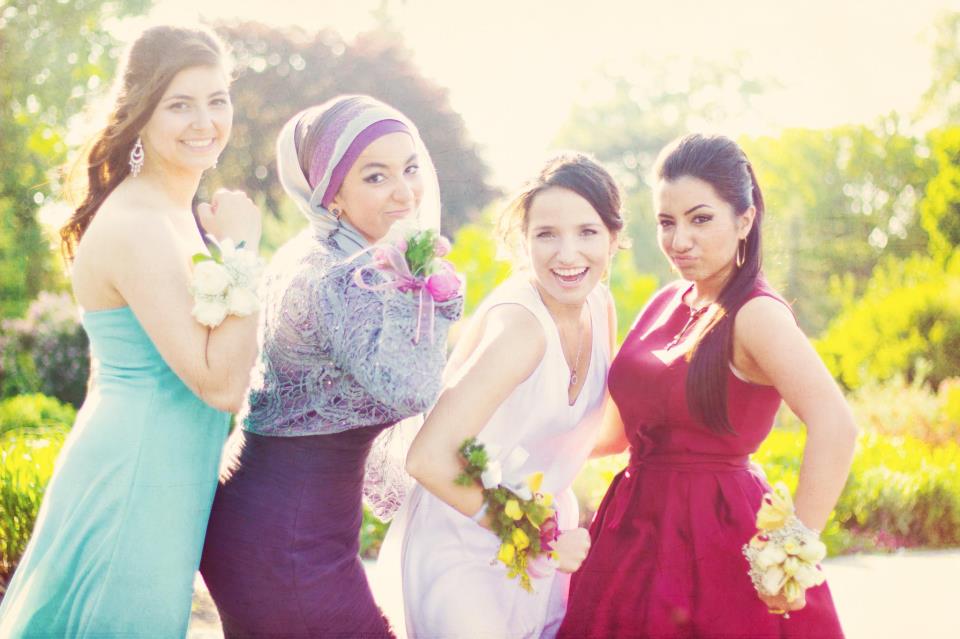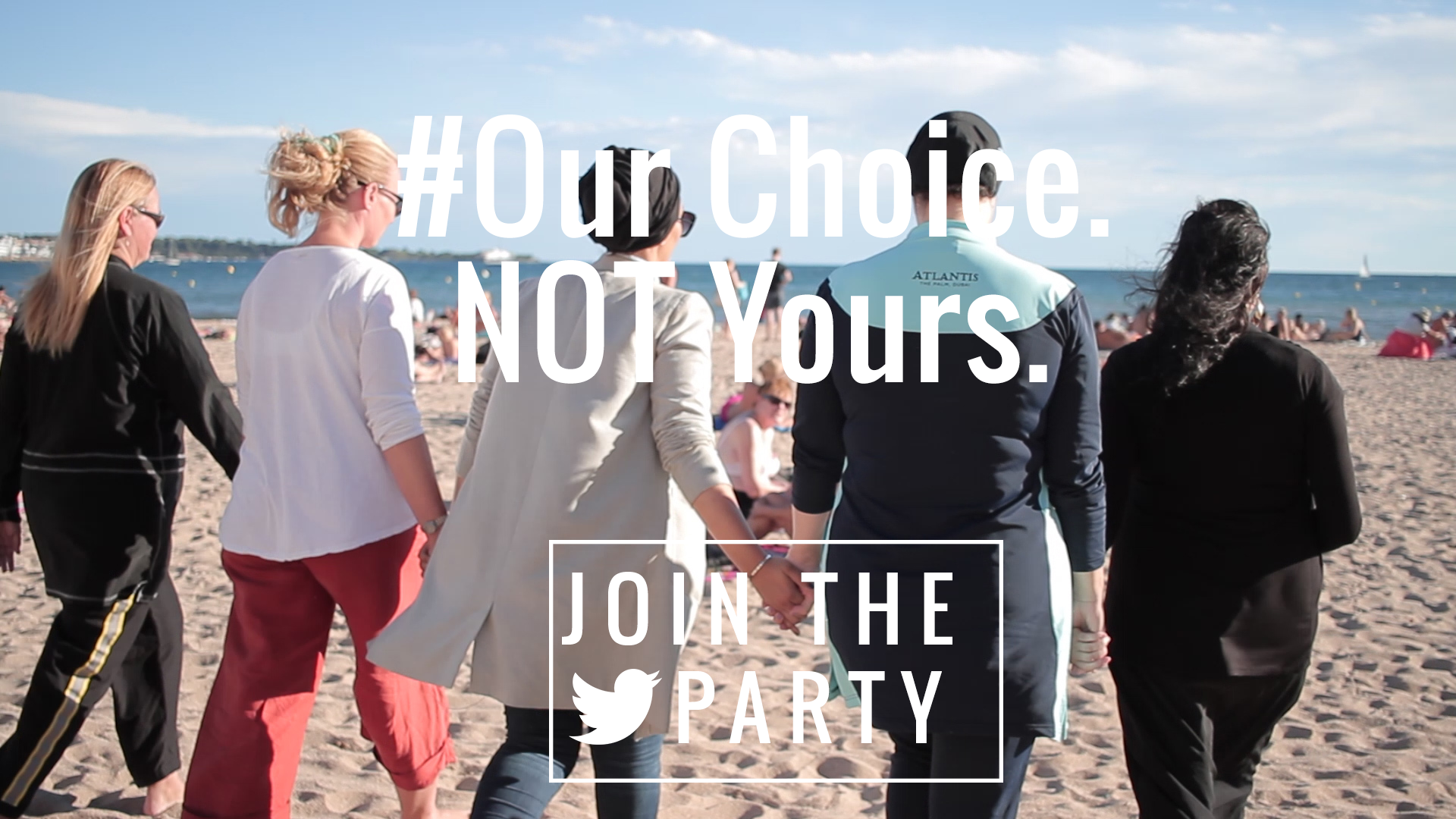An annual graduation reception in Arizona honoring sisters graduating high school level or above gives Muslimahs a prom-like outlet and inspires younger generations to reach for the educational stars.
Tonight, I attended an extraordinary event. It is an annual event here in the Valley, in fact, this year was the 15th annual Al-Muminah Graduation Reception, so it has become a part of our social landscape.
Routine can become a veil that dulls our senses to the beauty of the landscapes we live with, until Grace intervenes and something catches our eye–golden sunlight painting a ridge, a bird soaring–and the veil is lifted momentarily and we let Beauty in.
Sharing the table with the keynote speaker, Tayyibah Taylor from Azizah Magazine, I imagined seeing the event through her eyes. “You’re creating American Muslim culture here. These are the traditions that construct our identity” she had told us the night before.
The Al-Muminah Graduation Reception honors all graduates from high school and up. The event is sisters-only, ages 8 and up, and the dress is formal. There is a program honoring the graduates, everyone eats dinner together, and an after party follows where shoes are kicked off and we dance the night away to a playlist that is put together with the help of ticket holders. This year, in keeping with the 15th year, the theme was a Quincenera.
To open the program, we all stood and took an oath of sisterhood that included not taking pictures so people don’t have to worry about shots of them in spaghetti straps and plunging decollete showing up on facebook. The graduates, of every age and ethnicity imaginable, were escorted into the hall by elder women and introduced. A Quincenera waltz was performed. During the program, the graduates are presented with a certificate and a gift, while their accomplishments are read as well as their plans for the future. Representatives make speeches, advice is given for those coming up behind. It is a celebration of these women’s accomplishments, and truly inspiring.
In a state that has extremely low educational rankings, high teen pregnancy rates, and soaring high school drop out rates, the impact that this display of talent, drive, focus, intellect and ambition has on the young girls in the audience can’t be understated.
How it must be for the children to watch these amazing young women, gorgeously clad in their formal gowns, hearing their lists of accomplishments and the boldness of their future plans… what a beautiful testament that anything is possible. To see the proof standing in front of you. Not proof flown in- though that certainly has its inspirational potential- but proof in the annoying friend of your big sister, proof in your former teacher, proof in those that you’ve known all your life with their frailties and foibles. Women in general often downplay their accomplishments if they mention them at all. To hear all that someone has been involved in brings a new respect for each other to the surface. Flesh and blood reminders of the capacity of ordinary human beings.
In this place, surrounded by love and support, celebrated and honored, these girls, these women, bloomed. Their perfume sweet and heavy in the air, radiated, permeated, elevated us all to a place of movement and bliss, unity and power, strength and individuality. As women, as Americans, as Muslims, as humans. How appropriate that its beginnings were in the garden of someone’s home.
I feel truly blessed to be a part of this. For many communities around the country, such an event is almost unimaginable.
It started in the backyard of the founding members of the Al-Muminah youth group 15 years ago and has grown into an event that now calls for reserving entire pavilions at conference centers and hotels. Tickets sell out every year; it is THE social event. The prom atmosphere works the girls into a frenzy over dresses and shoes, manicures and hair-dos.
There have been the naysayers that cluck their tongues over these elaborate displays, but I think they are either missing–or denying–something very essential to our sociology and psychology. Whether hijabi or not, these girls cloak their beauty and sexuality in a culture that pounds us all with images that say that a woman’s worth lies solely in her sex appeal. Though I disapprove of that message for a variety of reasons, it has an undeniable effect on girls’ self-esteem whether they participate in perpetuating those messages or not. Women want to be beautiful. They want to feel beautiful. They want to be seen as beautiful. This event celebrates that, and allows everyone a safe place to express that side of themselves.
The American tradition of prom is problematic for many Muslim families. It is problematic for many non-Muslim American families as well. The prom itself is a school event, which means it is supervised and drug and alcohol free, but its what happens before and after prom that scares any parent who worries about their child’s ability to withstand temptation and adhere to the values they’ve been taught. Growing up, I knew parents that hired chefs to cook gourmet meals before the prom; presenting their kids with a glamorous (and free) alternative to eating out. Others threw after-parties at their homes to keep their children and their friends under their wing in a supervised environment. Increasingly, students go to prom in same-sex groups rather than with a date, and this certainly makes prom attendance more feasible for Muslims.
Even so, the Al-Muminah Graduation Reception provides an alternative to school proms that is completely worry free. Its girls-only. The music is screened. Its inter-generational. The girls can wear the dress they want without the worry of sending the wrong signals to some hapless boy. Most importantly, boys aren’t there to mess anything up or act like goof-balls.
Proms are for girls. Boys don’t like dressing up and eating fancy finger foods. Every prom is dampened by boys that don’t want to be there, clashing with girls’ expectations of what should be; a bull in the china shop of her fantasies. Here, the girls can enjoy themselves fully, wrapped in the downy envelope of their mutual admiration for each other and aligned expectations for the evening.
And what happens when girls are given that space is a magnificent thing to behold indeed.
(Photo Source: Reallifemuslimgirl.tumblr.com)
Jacqueline Freeman-Ennaffah is the president of the American Muslim Women’s Association of Arizona, a Women’s Studies instructor at Mesa Community College, and a presenter on domestic violence at local masjids.






Hmm, this was a good read until towards the end. I hate being the bull in a china shop, eh 😉 But, of course, in most Muslim households, its the bull who is expected to sacrifice his dreams to bring home the bread so the females can dance and look pretty and eat finger foods, you know, and then be told that we spoil their fun; meh.
There are several issues you brought up that I’d like to address OmarG
The organizers of this particular event are predominantly single professional women- so they’re buying their own dresses and paying for their own finger foods-
encouraging education empowers other women to do the same-
besides, since Islamic norms would be that the woman’s money is her own, I’m sure most of the women present at such events are paying for it with their own money regardless of their marital status.
If we address traditional gender roles, one could easily argue that the women are generally those that give up all personal dreams and ambitions as they are expected to stay home and raise the children. There is much room to pursue personal dreams in a career. How much room is there in raising children? By its very nature it is all about someone else.
Additionally, even in the most conservative of homes, boys can do pretty much whatever they want, while girls are held under lock and key. Boys are given free range and permission to pursue their dreams, while girls are more often than not censured, supervised, and restricted.
Though men are responsible for paying for the living expenses, it is certainly their choice to pursue a career that is fulfilling in order to do that. In the pursuit of his career, the man certainly has a myriad of ways to fulfill his personal dreams, ambitions and the like. If it is difficult, then I would point to societal and cultural infrastructure issues- which men designed and are in the positions to change.
But if we change the focus to girls’ self-esteem (which was indeed the focus of the article)
As incredible as this event is, there were still girls that say they wish they could have a “real” prom. One with boys. For those of us that have been to “real” proms, we know that the Al-Muminah event is FAR more fun. Boys ruin proms. They just do. Generally speaking, they hate dressing up and will spend the night complaining- which makes the girl feel bad, angry and sad. They don’t want to dance. The girls will spend the night begging their dates to dance, looking longingly at the dance floor.
Not so at an all-girl event. They were on the dancefloor waiting for the music to start.
Especially considering the social restrictions put on most Muslim girls, begrudging them such an outlet seems quite…
I’m not begrudging them their space; I think its a great idea. But, why does pumping up girls have to come at the expense of dumping on boys? I don’t think the event does that, but the way you wrote about it did.
Let’s separate the event and your interpretation of its purpose. My discomfort is in the subtle (or not so sublte) disparaging of men and boys implicit in the “bull in a china shop” statement which is loaced to the brim with all kinds of gender stereotypes: bull = uncouth, uncultured, careless (male); china shop = refinement, fragility, cleanliness/purity (female).
Furthermore, I propose that the sole reason for the event was to perpetuate “keeping women and girls under lock and key”; keep the boys away from the pure Muslim girls. You even allude to this when speaking about how Muslim parents are horrified thinking what would happen to thier kids at a prom. And, while drugs and alcohol are definite concerns, the #1 concern is their pure daughter not getting banged in the back seat.
Not to mention, the whole purpose of a prom sociologically speaking, any prom, is to introduce males and females to each other as mates. Irs probably merely a descendent of the quincenara (?), balls, Mid-West social dances, etc.
And lastly, your ideal of men being totally free typically holds true for the kind of slacker men who make very poor husbands and fathers. Real men who put their families first face the same kind of sacrificing of dreams that women also regretably face. Let’s not kid ourselves with the archetype of women as perpetual victims, shall we.
Tangential to this thread:
I wonder if there’s space in the Muslim community for a co-ed prom-like event, where young men and women can interact in a healthy, productive way. No need for alcohol, drugs, or post-prom illicit relations. The idea is that, while segregation has great benefits, what is also needed is a safe, fun, even glamorous, social space where young men and women can get to know each other. Seems to me that too much segregation results in increased awkwardness later when men and women begin the search for a life partner.
Of course, we’d still have to segregate the dancing component…